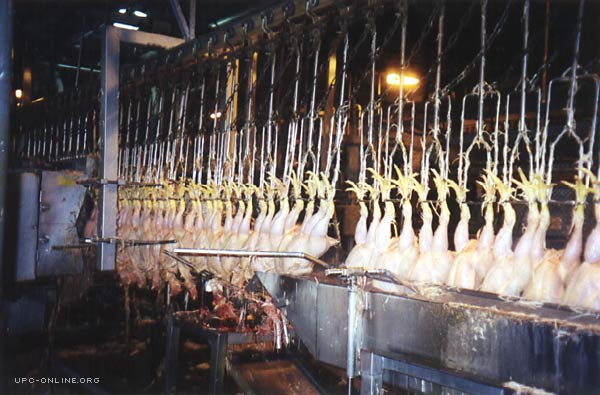Science on safety of chlorinated chicken ’misunderstood’

The Guardian | 13 September 2019
Science on safety of chlorinated chicken ’misunderstood’
The government has misunderstood the science on the safety of chlorinated chicken, a group of senior food policy experts has said.
It has also failed to give watertight commitments that it would not be sold here after a no-deal Brexit, they warn.
The experts have written to all MPs to warn that the British public is being “softened up” to accept chlorinated chicken and other food produced under US safety standards, despite it posing a danger to health.
In a briefing from the Centre for Food Policy, timed to reach MPs before party conferences, they argue that recent assurances by a government chief scientist were misleading, and a no-deal Brexit could open the door to unsafe food.
Guardian Today: the headlines, the analysis, the debate - sent direct to you
Read more
Prof Sir Ian Boyd, the outgoing chief scientist at the Department for Environment, Food and Rural Affairs (Defra), said in an interview two weeks ago there were “no health problems” with chlorinated chicken and its consumption should be a matter of “consumer choice” rather than government policy.
But the academics point to research published last year which found washing food in bleach does not kill many of the pathogens that cause food poisoning. Instead, it sends them into a “viable but non-culturable state”, which means they are not picked up in standard tests, which take a sample of the food and try to culture any germs on it.
The presence of the pathogens is thus masked by the bleach, but they are still dangerous to human health.
Erik Millstone, professor of science policy at Sussex University and co-author of the briefing, told the Guardian lives would be at stake if food based on these lower standards were sold in the UK. “I am satisfied [by the evidence] that US food poisoning cases are significantly higher than in the UK. A minority of people suffer fatal complications,” he said. “There will certainly be fatalities, and they typically affect vulnerable people, such as infants, small children and the elderly.”
He said a no-deal Brexit would increase the pressure for the UK to accept food from abroad produced to US standards, especially if shortages raised prices, and warned that current laws on labelling were inadequate.
Tim Lang, professor of food policy at City Universityand also a co-author, said the government was “wriggling” over the definitions of safety. “For the chief scientist at Defra to say what he did is not accidental,” he said.
Robert Wood Johnson, the US ambassador, responded to the Guardian: “Sir Ian Boyd is absolutely right: American food safety standards are second to none. The EU’s scientists have said antimicrobial washes are the most effective and economical way to deal with potentially lethal bacteria like salmonella and campylobacter. The World Health Organisation found North America has the lowest incidence of foodborne illness anywhere in the world. A comprehensive free-trade agreement that includes agriculture will create more opportunity, greater choices and wider prosperity for both British and American farmers and consumers.”
His clear signal that agriculture should be part of a trade deal faces ministers with difficult choices. Farmers fear being undercut by lower-standard imports, while supermarkets are concerned that they will be blamed over any future food safety scares.
Minette Batters, president of the National Farmers’ Union, told the Guardian: “Even if we leave the EU with a deal, there is a very real risk that we will have to compete with food imports that have been produced using methods and products that would be illegal on British farms. We need a clear commitment from government that it will set up a trade and standards commission to provide certainty for both farmers and the British public that our values of food production will be respected post-Brexit.”
A spokesperson for Defra stopped short of an explicit commitment on chlorinated chicken, or that EU standards would be maintained: “We have been clear that any future deal with the US must work for UK consumers, farmers and companies. Without exception, imports will meet our stringent food safety standards. After EU exit, the UK will decide how we set and maintain our own standards and regulations.”
Gareth Morgan, head of farming and land use policy at the Soil Association, warned that consumers would face issues beyond food safety: “The notion that chlorine-washed chicken and hormone-fed beef are “safe” misses the point. These practices prop up inherently unsafe industrial farming systems with terrible welfare standards.”





